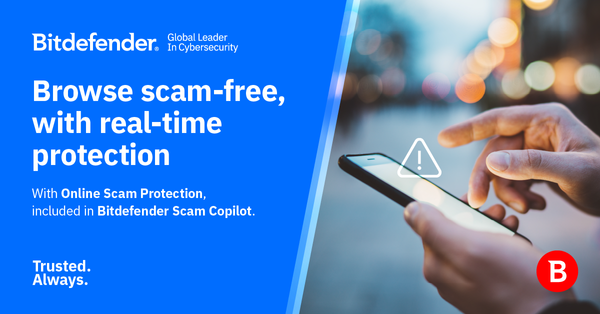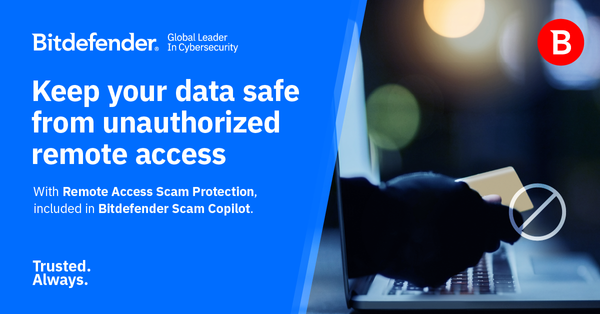Can VPN Protect You from Being Hacked?

In the era of cyberattacks, creating an airtight environment for your Internet-enabled devices is a challenging task. Threat actors become more cunning by the day in their search for new ways to circumvent even the most restrictive defense mechanisms.
It’s common knowledge that specialized software like antivirus and anti-malware solutions can protect you against hackers, but can any other tools fit this role?
VPNs, for instance, have a solid reputation for keeping your online activities private, but how well do they fare in a more challenging scenario, such as steering you clear of hackers and their mischievous attacks?
VPN functionality 101
First, we need to understand exactly how VPN works before we can settle on whether it can keep you safe against hackers. VPN, which is short for Virtual Private Network, anonymizes your data by routing your traffic through a series of secure machines called servers.
Most VPNs redirect your data through a single server, which should be enough to keep your traffic out of harm’s way. However, certain VPN providers boast a multi-hop feature that bounces your connection through multiple servers, strengthening your privacy even further.
Unfortunately, simply redirecting traffic is not nearly enough to prevent hackers from snooping on private data nowadays. VPNs also feature solid encryption protocols to cipher relayed data, so even if it falls into the wrong hands, the criminals can’t use it.
Aside from their primary function of re-routing and encrypting your traffic, modern VPNs such as Bitdefender VPN come with several additional features, including but not limited to:
- Internet kill switches that can prevent your device from reverting to its default, unsecured connection if the VPN temporarily drops
- Adblockers and anti-tracker modules that can prevent online entities from tracking your online behavior and targeting you with customized content (ads, news, articles, propaganda)
- Split tunneling features that let you exclude certain apps and services on your device from going through the VPN tunnel
- Multi-hop VPN, which lets you bounce your connection through two or more VPN servers to increase anonymity
VPNs offer limited protection against hackers
To answer the question: yes, a VPN can protect you against hackers and some of their attacks, but it’s crucial to understand their limitations. A VPN won’t protect you from downloading or installing malware on your computer, which is one of the most critical attack vectors these days.
Furthermore, although some VPN solutions include malware and phishing protection, they offer limited protection against these attacks. Malware and phishing protection modules rely on databases that consist of previously detected malicious domains. If the domain is new and not acquired by the database, your VPN’s malware and phishing protection module can’t do much.
However, a VPN can protect you against hackers on public networks. If you’re on public Wi-Fi, other network participants might be able to see your traffic, especially if it’s not encrypted. Although HTTPS could help you achieve the same effect, it only works inside your browser. By contrast, a VPN gives you system-wide protection, regardless of the app or service you use.
VPNs can also protect you against DoS and DDoS attacks by obscuring your IP address. Without knowing your IP address, threat actors can’t target you with denial-of-service attacks.
VPN can protect you against:
- MiTM attacks – by re-routing your traffic and encrypting it, VPNs make it incredibly challenging for attackers to monitor your traffic and steal your private data
- Session hijacking – also known as cookie stealing, this type of attack often occurs on unsecured, public Wi-Fi networks, and VPNs offer excellent protection for it
- DoS and DDoS attacks – without knowing your actual IP address, hackers have no way to target you with denial-of-service attacks
- Remote hacking –a VPN cloaks your IP address, making remote hacking impossible if the perpetrators don’t know your real IP address
VPNs can’t protect you against:
- Malware – VPNs aren’t designed to protect you against downloading or installing malware on your device, unlike specialized anti-malware solutions such as Bitdefender Total Security
- Phishing – although some VPNs include phishing protection features, they don’t give you airtight protection against phishing attempts, which often exploit human error
- Human mistakes – your VPN can’t prevent you from disabling your antivirus, clicking on malicious links, or handing out your private data voluntarily
tags
Author

Vlad's love for technology and writing created rich soil for his interest in cybersecurity to sprout into a full-on passion. Before becoming a Security Analyst, he covered tech and security topics.
View all postsRight now Top posts
How to Protect Your WhatsApp from Hackers and Scammers – 8 Key Settings and Best Practices
April 03, 2025
Outpacing Cyberthreats: Bitdefender Together with Scuderia Ferrari HP in 2025
March 12, 2025
Streamjacking Scams On YouTube Leverage CS2 Pro Player Championships to Defraud Gamers
February 20, 2025
How to Identify and Protect Yourself from Gaming Laptop Scams
February 11, 2025
FOLLOW US ON SOCIAL MEDIA
You might also like
Bookmarks









